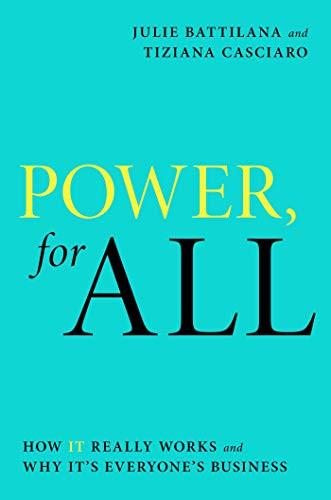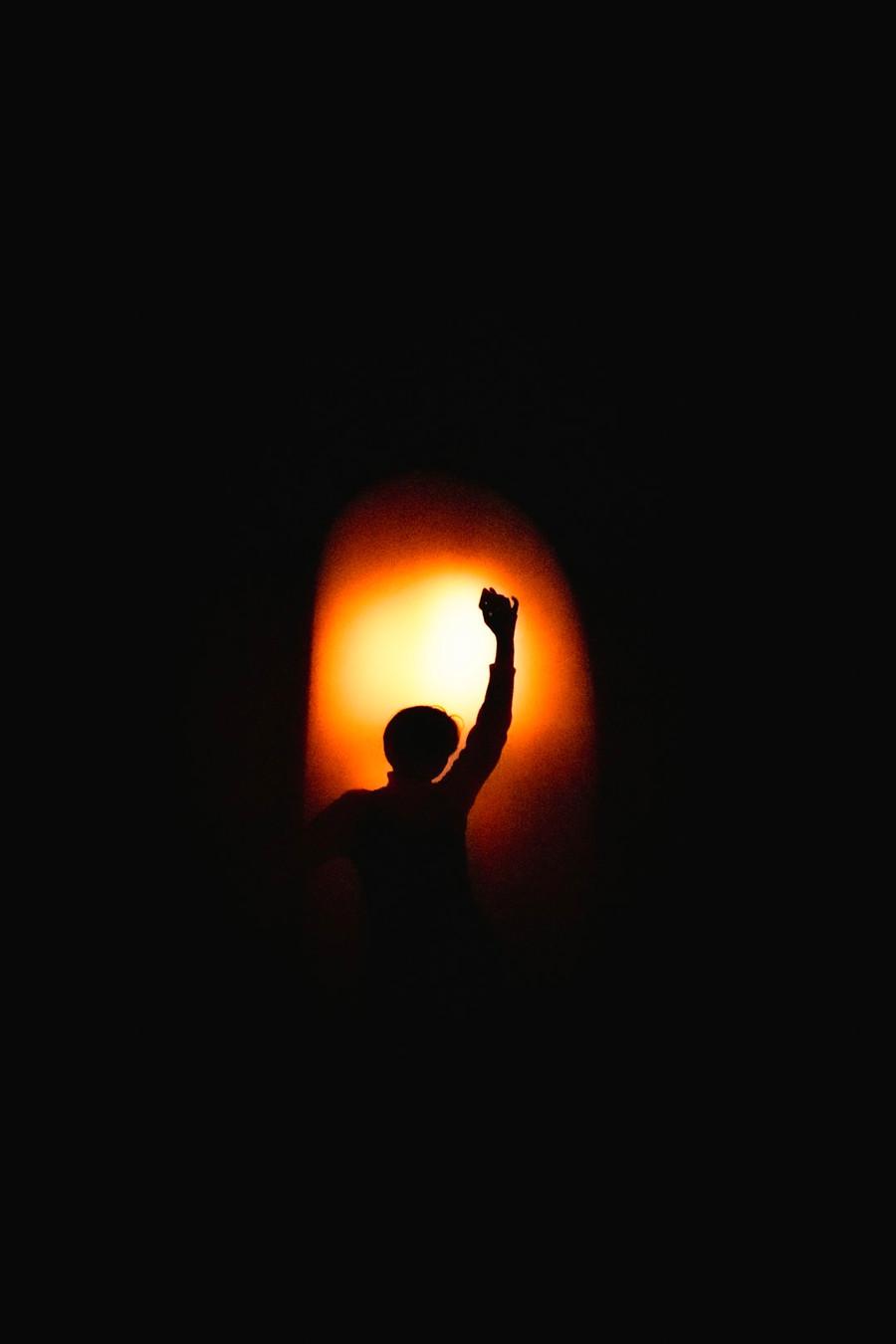instructor Hood's Key Ideas from Power, for All
by Julie Battilana, Tiziana Casciaro
Ideas, facts & insights covering these topics:
12 ideas
·1.29K reads
8
Explore the World's Best Ideas
Join today and uncover 100+ curated journeys from 50+ topics. Unlock access to our mobile app with extensive features.
Power, for All
- To make a difference in the world, you need to understand the dynamics of power.
- Control over resources is the foundation of power.
- Power is morally neutral, and it is each person’s choice to use it to pursue noble or evil ends.
- Having power can alter a person’s perspective and judgment.
- Power is not necessarily inherent in a title or position.
- Relationships are a critical source of power.
- Society and businesses should restrain the use of power to prevent its abuse.
- Serve your stakeholders, not only your shareholders.
20
181 reads
To make a difference in the world, you need to understand the dynamics of power.
“Power fascinates and repulses us at the same time.”
Most people harbor significant misconceptions about how power works and how individuals or groups acquire it. These fallacies can impede recognizing and averting abuses of power. They also impede people’s efforts to gain more control over their lives and to advocate for change in society.
14
152 reads
Control over resources is the foundation of power.
“The primary driver of our desire for power is not the desire for influence over the lives of others, but rather freedom from the influence of others over us.”
17
141 reads
The need for two fundamental resources has underpinned power throughout history:
- Safety – In any human group, people may gain power by providing access to the necessities for physical and psychological well-being, such as food, water, shelter and protection from attack.
- Self-esteem – People need to feel that their lives are meaningful and that they have earned respect and approval. Providing opportunities for people to connect, and offering ways in which they can elevate their status, achievements and moral standing are among the most significant routes to gaining power and influence.
14
127 reads
A power relationship is not always a one-way street
“Power exists only in the context of a relationship. No one is ever powerful or powerless in general.”
14
122 reads
Parties can sustain or realign a balance of power in four ways:
- Attraction – Increasing the perceived value of the resources you hold can shift the balance of power in your direction.
- Consolidation – You can increase your power over other people by limiting their access to alternate sources for the things they value.
- Withdrawal – Those in the lower positions can rebalance the scales by spurning what more powerful parties offer.
- Expansion – Other diamond sellers also diluted De Beers’s pre-eminence by increasing the number of alternative sources for diamonds, from new mines in Canada to new techniques for creating synthetic diamonds.
15
102 reads
Power is morally neutral, and it is each person’s choice to use it to pursue noble or evil ends.
“[Power] seems like fire: bewitching, but capable of consuming us if we get too close.”
14
95 reads
Having power can alter a person’s perspective and judgment.
“When leaders express humility, the quality of team members’ contributions increases, together with their job satisfaction and retention, and their engagement and learning orientation.”
14
86 reads
Power is not necessarily inherent in a title or position.
“Far from being fixed, power relationships evolve over time as the parties engage in…moves and countermoves.”
“Collectively, our misunderstanding of power is catastrophic, because it makes us less likely to identify, prevent or stop abuses of power that threaten our freedoms and well-being.”
14
75 reads
Relationships are a critical source of power.
“Having many connections is not the only way a network gives you power: You can also control access to valued resources by being the in-between, the information broker between networks.”
Creating a power map requires observation. Take note of others’ behaviors and interactions to root out answers to:
- Who is in alliance, and who is in conflict?
- Who has the most connections?
- Who do people seek out for advice or information?
15
67 reads
Society and businesses should restrain the use of power to prevent its abuse.
“[The practice of] power-sharing and accountability accomplishes two objectives: It doesn’t let power go to the leader’s head, and it improves the effectiveness of the group.”
14
71 reads
Serve your stakeholders, not only your shareholders.
“Too great a power imbalance is dangerous, not only for the disadvantaged, but also for those at the top because it motivates action against the status quo.”
15
78 reads
IDEAS CURATED BY
CURATOR'S NOTE
How It Really Works and Why It's Everyone's Business
“
Discover Key Ideas from Books on Similar Topics
Read & Learn
20x Faster
without
deepstash
with
deepstash
with
deepstash
Personalized microlearning
—
100+ Learning Journeys
—
Access to 200,000+ ideas
—
Access to the mobile app
—
Unlimited idea saving
—
—
Unlimited history
—
—
Unlimited listening to ideas
—
—
Downloading & offline access
—
—
Supercharge your mind with one idea per day
Enter your email and spend 1 minute every day to learn something new.
I agree to receive email updates

